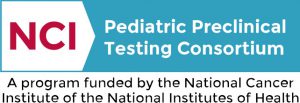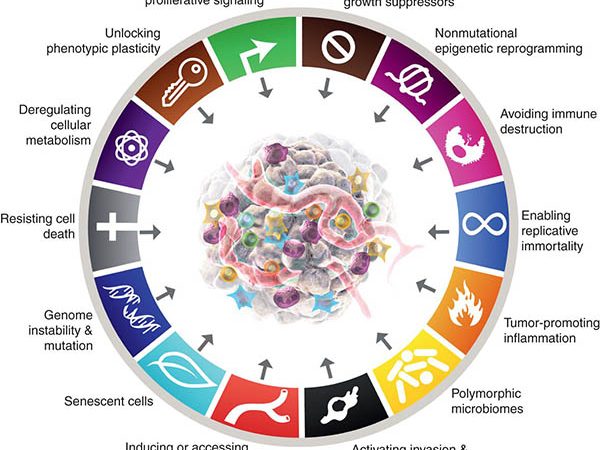Highlighting Pediatric Preclinical Drug Testing at the Annual Meeting 2018
Despite significant advances in pediatric cancer diagnosis and treatment options, cancer remains the leading cause of disease-related death in pediatric patient populations.
As in previous years, the AACR’s Pediatric Cancer Working Group, which now boasts over 2,500 members, will hold a special scientific session at the Annual Meeting, where ongoing advances and existing challenges in cancer research will be discussed through the pediatric lens. This year, we are thrilled that the Innovative Therapies for Children with Cancer Pediatric Preclinical Proof-of-Concept Program (ITCC-P4) and the NCI Pediatric Preclinical Testing Consortium (PPTC) will be joining together to share information on their respective platforms and to discuss opportunities for future collaboration within the pediatric preclinical field.
Leading members from both platforms will be presenting short talks at this session. Speakers include Hubert N. Caron, Stefan M. Pfister, Malcolm A. Smith, John M. Maris, Peter J. Houghton, Richard B. Lock, and Julia B. Schueler. Throughout the session, speakers will highlight the various preclinical models that have been developed within their platforms, the experimental therapeutic agents being tested, and how these data can lead to potential opportunities to establish of new pediatric cancer therapies.
This unique, collaborative session is open to all Annual Meeting attendees. The session will be held Tuesday, April 17, 2018, from 1:00-3:00 p.m. CT, in room S404 at McCormick Place South (Level 4).
 The ITCC-P4, established in 2017, is a five-year project driven by 21 different partner organizations across eight countries and represents an exciting public-private partnership, supported by the Innovative Medicines Initiative in Europe, dedicated to addressing unmet clinical needs in the pediatric arena.
The ITCC-P4, established in 2017, is a five-year project driven by 21 different partner organizations across eight countries and represents an exciting public-private partnership, supported by the Innovative Medicines Initiative in Europe, dedicated to addressing unmet clinical needs in the pediatric arena.
The initial goal of the platform is to comprehensively characterize hundreds of novel patient-derived preclinical models of solid primary and relapsed pediatric tumors. These models will subsequently be used in combination with pediatric biomarker and target identification studies to test the efficacy of investigative drugs that have the potential to be effective against various pediatric malignancies. Long-term, the goal of the platform will be to improve and optimize biomarker-mediated risk stratification and to expand the available treatment armamentarium for pediatric cancer patient populations.
 Domestically, the NCI’s PPTC is a similar platform, composed of five research centers covering pediatric brain tumors, childhood leukemia, Ewing sarcoma, neuroblastoma, osteosarcoma, renal tumors, and rhabdomyosarcoma. The primary objective of the PPTC is to produce reliable preclinical in vivo data using genomically characterized patient-derived xenografts so that researchers investigating childhood cancer may better prioritize which agents to pursue in pediatric clinical trials. The PPTC also focuses on identifying signaling pathways that contribute to pediatric cancer onset and progression in an effort to further guide drug development efforts. The program, which is currently in its third year of a five-year NCI grant, has already led to the generation of over 300 unique models across 23 histologies, testing of more than 80 novel agents, and has notably included more than 50 industry partners.
Domestically, the NCI’s PPTC is a similar platform, composed of five research centers covering pediatric brain tumors, childhood leukemia, Ewing sarcoma, neuroblastoma, osteosarcoma, renal tumors, and rhabdomyosarcoma. The primary objective of the PPTC is to produce reliable preclinical in vivo data using genomically characterized patient-derived xenografts so that researchers investigating childhood cancer may better prioritize which agents to pursue in pediatric clinical trials. The PPTC also focuses on identifying signaling pathways that contribute to pediatric cancer onset and progression in an effort to further guide drug development efforts. The program, which is currently in its third year of a five-year NCI grant, has already led to the generation of over 300 unique models across 23 histologies, testing of more than 80 novel agents, and has notably included more than 50 industry partners.
Tuesday’s featured PCWG scientific session will complement a robust collection of pediatric cancer-focused sessions to be held throughout the course of the AACR Annual Meeting 2018. In addition to the scientific session, PCWG members as well as anyone interested in pediatric cancer are encouraged to attend this year’s PCWG Town Hall Meeting and Networking Reception on Sunday, April 15, from 6:30-8:30pm CT in room S404 of McCormick Place Convention Center South. This annual marquis event serves to highlight past and future PCWG activities. This year, the session will feature an active international panel discussion focused on the current state of pediatric cancer data sharing.
The AACR Annual Meeting 2018 PCWG Scientific Session is being made possible thanks to generous support from Solving Kids’ Cancer, Loxo Oncology, and Aflac Inc.



